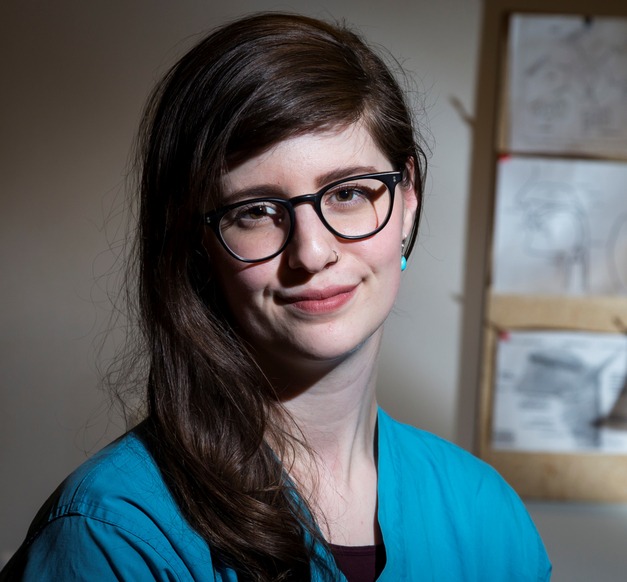Iris Edda Nowenstein, MS in Speech Pathology
Iris Edda Nowenstein's own experience with learning Icelandic as a second language inspired the topic of her final project in Speech Pathology. For her thesis, Iris studied language samples from twenty-eight teenagers, of which half had Icelandic as a second language and half were native speakers of Icelandic. "To do this, I collected, transcribed, and analysed so-called narrative language samples", explains Iris.
Iris, who also holds a Master's degree in General Linguistics, says she is very interested in researching language acquisition and multilingualism. She considers it important for research to cover languages other than English, which enjoys certain privileges. "Icelandic is in many ways the ideal opposite, both with regards to grammar and considering the status of the language in an international context", Iris adds.
Iris Edda Nowenstein
For her thesis, Iris studied language samples from twenty-eight teenagers, of which half had Icelandic as a second language and half were native speakers of Icelandic.

Iris was given the opportunity to quench her thirst for knowledge in this field when she met Elín Þöll Þórðardóttir. Elín is a professor at the School of Communication Sciences and Disorders at McGill University in Canada. At the time, she launched an interesting research project entitled 'Individual differences in learning a second and third language in Iceland'. Iris' Master's thesis in Speech Pathology was written as part of this project.
Iris interviewed fourteen teenagers who spoke Icelandic as a second language and compared their language samples with fourteen teenagers who were native speakers of Icelandic. "The language samples showed less grammatical complexity among those who had Icelandic as a second language. The differences between the two groups did not necessarily manifest itself in the number of grammatical errors, but rather in a lower percentage of nominals that show inflectional morphology. This is a subtle difference. It was also noted that participants who had Icelandic as a second language, used increasingly more English words the longer they lived in Iceland: Learning Icelandic in Iceland also means using English", Iris points out.
Iris, who is currently working as a speech therapist at Landspítali University Hospital, will have the opportunity to research the correlation between Icelandic and English more closely for her doctoral studies at the University of Iceland, which she will begin shortly. She will be part of a major research project studying the influence of English on the Icelandic language community in the age of digital media.
According to Iris, studying the language of adolescents sheds light on how people adopt a second language in a small society. "Understanding the underlying issues in learning a second language is an important part of ensuring children's equal rights to education", Iris remarks at the end of the interview.
Supervisor: Elín Þöll Þórðardóttir, Professor at McGill University in Canada


